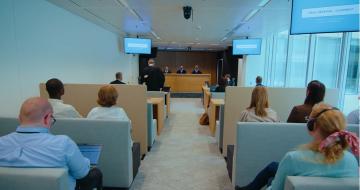It is not always the authors of software who enjoy the rights from it.
The author(s)
The authors are the people who designed the software, designed its architecture, structure and the way it is built and written. This would not, for example, be the programmer himself if he merely carried out the programming instructions, without having the possibility of determining how to build and write the software himself.
The author(s) of software have the rights to this software, if they have not transferred them to other people.
The employer of the software author
When the author created the software under an employment contract or statute, it is the employer who has the property rights to this software, unless stipulated otherwise. The employee or civil servant who is the author of the software cannot, therefore, use the software without the authorisation of his employer.
Transfer of rights
The author will sometimes transfer the software to a third party. This might be, for example, a software publisher, a professional who will then market the software.
In this event, as the author transferred the software and the relevant property rights, he can no longer exercise the rights himself.
Some rules apply to the contract between the author, who is a natural person, and the transferee.
However, please note that these types of contract should not be confused with a licence, where the author only authorises a person to use the software.
The transfer of the software to the person who commissioned the work
If a software is created in execution of a commission contract, the rights to the software are not automatically transferred to the client. In principle, only the right of use is transferred to the client, and the author continues to hold the copyright to the software.
However, the client and the author can agree that all the property rights will be transferred to the client. To do this, the transfer of the software rights to the sponsor must be expressly agreed and drafted in writing.


